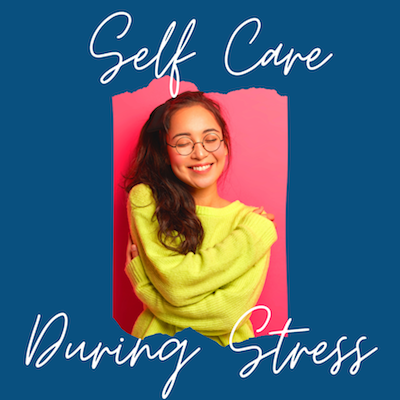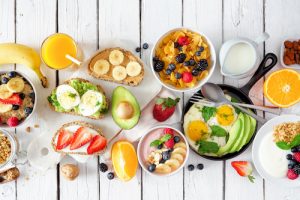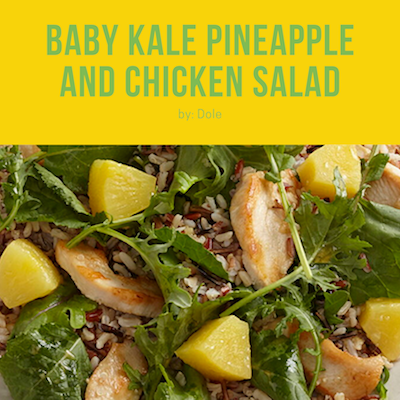I know this is a complicated subject, and one I write with great compassion. In the wake of such uncertainty, the practice of self-care is essential. Self-care during stressful times will look different than self-care when things are normal. Still, nonetheless, it's necessary to take care of both your emotional and physical health during this time.
Every situation is different, and I cannot fully understand all the ways your life might be impacted right now. I hope this newsletter helps bring some peace and comfort as I share some suggestions on how you approach self-care during this time of so much uncertainty.
-Stephanie
|
|
|
Self Care During Stress
|
 Limit screen time, especially when it comes to images and reports on the event. Watching the news, seeing pictures on social media, and reading about it over and over again will only increase your stress. If you find that the news and updates are causing more anxiety and stress, then respect that tuning out may be better for your health and well-being. Limit screen time, especially when it comes to images and reports on the event. Watching the news, seeing pictures on social media, and reading about it over and over again will only increase your stress. If you find that the news and updates are causing more anxiety and stress, then respect that tuning out may be better for your health and well-being.
- Disengage from the digital devices. Tip #1 was limiting screen time, specifically the news. Tip #2 I want to reinforce that this also applies to all forms of digital distractions. From television, social media, video games, smart devices, computers, laptops, these are digital devices. At the same time, they certainly serve their purpose in today's world, also can be dangerous for our emotional and mental health if overconsumed. I'm not suggesting you unplug completely, unless, of course, that what you want. For most, that would be too unrealistic. However, I do suggest you monitor the time spent on digital devices. Create realistic boundaries that include time outside, reading a book, and physical movement.
- Explore new or take up old hobbies. Activities that keep your hands and mind busy like woodworking, crafts, cooking, sewing, scrapbooking, building something.
- Start a gratitude journal. But don't spend all your time and energy focused on the negative and hard things that have happened. Find positive things to talk about and lift each other up with encouraging words.
- Take it one day, one task at a time. Thinking about everything that is going on can be very overwhelming. Stress can make even a normal workload seem unbearable. When thoughts start to run ahead of you, take a deep breath, and remember to take it one task at a time.
- Allow yourself to feel your emotions. Know it's okay to go through stages of feeling confused, sad, and even angry. and sadness as you begin the road to recovery. Give yourself permission to grieve, but also remember you can and will get through this. As stated in the step above, take it one day at a time and challenge yourself to find joy and goodness in each day.
- Don't be afraid to ask for help. If the feelings of stress, anxiety, and depression continue to persist or interfere with your ability to function in day to day life, seek out support. Reach out to your doctor and find a mental health professional who can help with your recovery process. You don't need to go through this alone. There are resources and support groups available to help with the emotional recovery process. Don't be afraid to take the first step and ask for help.
|
|
|
Mind & Body Recovery Tips
|
 Participate in some type of exercise every day. While going to the gym might not be feasible, you can still participate in physical activity. Regular movement is essential for a healthy mind and body! It helps reduce stress, improve your mood, and keeps your heart and muscles healthy. Participate in some type of exercise every day. While going to the gym might not be feasible, you can still participate in physical activity. Regular movement is essential for a healthy mind and body! It helps reduce stress, improve your mood, and keeps your heart and muscles healthy.
- Nourish and fuel your body with nutrient-dense foods. When it comes to eating during this time, many factors can play into what you can eat. Aim to consume nutrient-dense foods like beans, whole grains, fruits, vegetables, lean proteins, and plant-based fats. These foods are important because they provide both energy and nutrients for a healthy mind and body.
- Practice deep breathing. Long deep breaths help reduce stress by improving overall blood flow to the cells in your body and allows your mind and body to calm down.
- Limit or avoid alcohol. While alcohol might temporarily reduce stress, in the long run, it actually intensifies the pressure you were already feeling. Alcohol abuse is a common and serious issue when it comes to trauma. If you or a loved one is suffering from alcohol abuse or addiction, seek out immediate support.
- Limit caffeine and other stimulates. During times of stress, it can be natural for some to turn to caffeine and other stimulates for an energy boost to "face the work." However, it's essential to recognize that stimulants, such as caffeine, can actually increase your stress and anxiety. Pay attention to how your body responds. If you notice caffeine enhances the feelings of stress and anxiety, reduce or eliminate your intake.
- Keep a stash of jokes on hand. Seriously, this might seem a little off the cuff, but laughter and having a sense of humor is good for your health and well-being.
|
|
Featured Recipe
Baby Kale Pineapple and Chicken Salad
|
 Recipe by Dole Recipe by Dole
- 1 can (20 oz.) DOLE® Pineapple Chunks, drained, reserve juice
- 1 bag MINUTE® Multi-Grain Medley Rice, uncooked
1/4 cup vegetable oil
- 2 tablespoons KIKKOMAN® Ponzu Sauce
- 1 tablespoon KIKKOMAN Rice Vinegar
- 1 teaspoon grated fresh ginger
- 1-1/2 teaspoons honey
- 2 pkg. (12 oz.) cooked chicken breast strips
- 1 pkg. (6 oz.) baby kale or baby kale mix
Directions
Measure 2 tablespoons juice and set aside. Prepare multi-grain medley according to package directions using remaining reserved pineapple juice plus water to measure 1 cup; cool.
Combine oil, ponzu sauce, rice vinegar, ginger, two tablespoons reserved pineapple juice, and honey in a small bowl. Whisk to combine.
Combine chicken, kale, pineapple, and cooked rice medley in a large bowl. Pour ponzu vinaigrette over salad; toss to evenly coat.
Serves 8, Serving size: 1 cup
Calories: 200, Total Fat: 8 gm, Saturated Fat: 2 gm, Cholesterol 25 mg, Sodium 510 mg, Carbohydrates 19 gm, Fiber 1 gm, Sugars 9 gm, Protein 13 gm
|
|
|
Be Inspired
|
|
"For members of the public, staying at home and sheltering in place isn't selfish, it's generous. Social distancing helps keep the virus from infecting others at the same time that it flattens the curve of the spread of the pandemic, giving health facilities a chance to provide care over time." - Seth Godin
|
|
|
About SO Nutrition
|
 Stephanie Leipprandt Ouellette, MBA, RDN, LD
Stephanie Leipprandt Ouellette, MBA, RDN, LD Stephanie has been working in the field of nutrition and dietetics since 1995. She earned a Bachelor of Science degree in Dietetics from Michigan State University, completed an Approved Pre-Professional Practice Program at Western Michigan University and earned a Master of Business Administration from Baker College. She’s been a Registered Dietitian Nutritionist since 1996 and licensed in Texas since 2007. In 2008, Stephanie earned her certification in Childhood and Adolescent Weight Management. Stephanie has extensive clinical & managerial experience, both in corporate settings and in the community. Now she wants to share her knowledge with you, because most (if not all) nutritional habits begin at home.
Stephanie and her family reside in Katy, Texas
|
|
| |
Copyright © 2020 Customized Nutrition Newsletters, All rights reserved.
|
|
| |
|
|